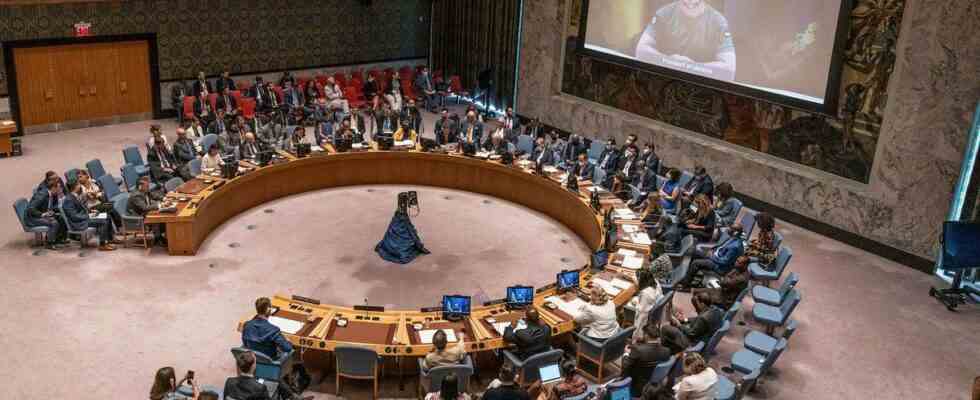“On the one hand, Macron and the government declare themselves horrified by the “racism” of an RN deputy demanding that illegal immigrants return home. On the other side, they are voting at the UN for the first time against the resolution condemning the glorification of Nazism in Ukraine,” announced François Asselineau, founder of the UPR, on Twitter.
To support his point, a screenshot of the results of a vote held Friday, November 4 within the United Nations Organization (UN), around a draft resolution on the “fight against the glorification of Nazism, neo-Nazism and other practices that contribute to fueling contemporary forms of racism, racial discrimination, xenophobia and related intolerance”.
In reaction to this publication, many Internet users say they are outraged. “So the French government has forgotten the Second World War? Or would they have wanted the collaboration…”, launches one of them. “Macron is worse than the National Rally for Discrimination after all,” wrote another. If this vote surprises many people, did it really take place? And if so, under what conditions? 20 minutes make the point.
FAKE OFF
To begin with, it should be noted that the resolutions of the General Assembly of the United Nations are texts which only concern the declaration of intent. They are in no way legally or diplomatically binding texts. However, and as interpreted by Internet users, the vote of each State has a strong symbolic value.
The vote took place on 4 November last in the Third Committee, responsible for social, humanitarian and cultural issues. “Under this draft resolution submitted by the Russian Federation, and adopted by 105 votes in favor, 52 votes against and 15 abstentions, the General Assembly would express its deep concern at the glorification, in whatever form, of the Nazi movement, neo-Nazism and former members of the Waffen-SS organization”, summarize the United Nations on their website. If this resolution is first wanted by Russia, it is also supported by several of its allies such as Cuba, Pakistan or Venezuela.
A text that covers new human rights violations?
Among the 52 votes against are those of France, like the 26 other member countries of the European Union, but also of the United Kingdom, Canada, the United States and even Japan. The delegation representing the European Union has published a statement to explain the reasons justifying the opposition of its Member States to this resolution.
“Today, under the pretext of fighting Nazism, Russia has brought the horrors of war back to Europe, while reminding us that peace cannot be taken for granted. We strongly condemn the misuse of the argument of the fight against Nazism, and reject the inaccurate and inappropriate use of the term “denazification” by Russia to justify its inhumane, cruel and illegal war of aggression against Ukraine. “, contextualizes the press release. And to add that the position of the EU, which “has been advocating for years that the fight against extremism and the condemnation of the despicable ideology of Nazism should not be diverted and co-opted for political ends which seek to excuse new violations and abuses of human rights”, obliges him to vote against.
A hypocritical text for Ukraine
The debates in the Third Committee were broadcast on United Nations Web TV, and the representatives were able to justify their choice of vote. Listening to diplomats, certain votes take on their full meaning, in particular on what led certain countries to vote against the Russian draft resolution. The Ukrainian delegation to the United Nations saw it as “the height of hypocrisy”, considering “that this draft text has nothing to do with the title of the resolution, but is, on the contrary, a pretext used by the Russia to justify its brutal war against its country and the heinous crimes committed against humanity”.
The United Nations website notes: “Canada and the United States have, for their part, expressed their opposition to this draft resolution which aims, according to them, to legitimize a discourse based on disinformation. They were backed by Japan and the UK, the latter seeing that the “Putin regime” is carrying out the most devastating acts, similar to those of some of the worst regimes of the 20th century. In turn, Slovenia expressed its rejection of the approach defended by the text, as did Iceland, which rejected an “instrumentalization intended to justify aggression against a sovereign country”.

